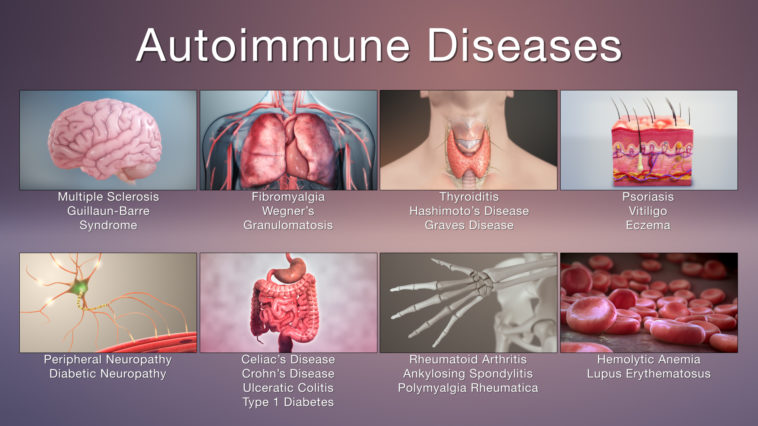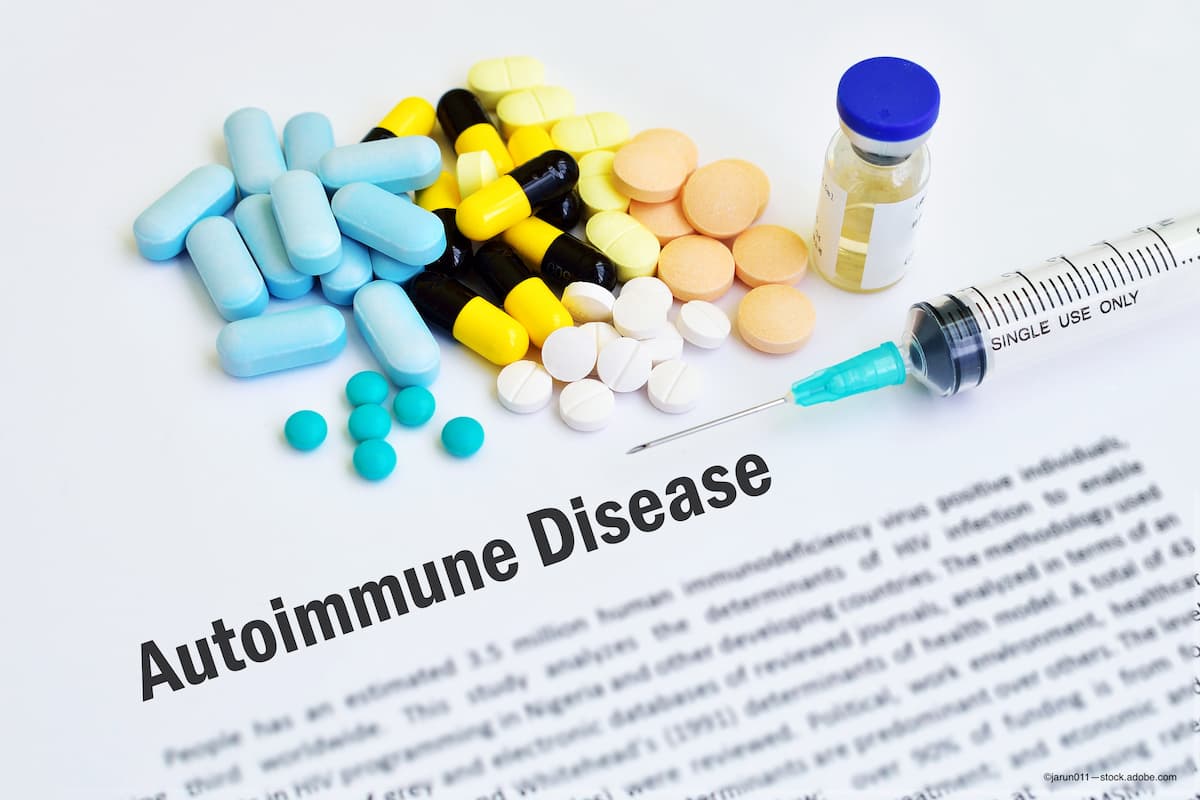
Can Covid trigger autoimmune disease?
Over the past few years, autoimmune diseases have been the subject of much hype. One particular new addition to the ever-growing list is Covid-19. But is it capable of triggering autoimmune disease? It’s more likely that it is a psychosomatic condition.
What are autoimmune diseases?
Autoimmune disorders are situations in which the body’s immune system assaults the body’s tissues. There are various autoimmune disorders, but they all have some qualities in common.
All autoimmune diseases occur when the body’s natural defenses against infection malfunction; this can happen because of environmental and genetic factors.
The exact cause of the autoimmune disease is still a riddle to researchers. According to the research, there is evidence that psychosomatic factors are more likely to be responsible for it than actual physical injuries or illnesses. The symptoms people experience may be more closely related to their mental state than they are to any bodily injury or disease.
There is currently no cure for autoimmune disease, but many treatments available can help improve the symptoms. These treatments include medication, lifestyle changes, and surgery.
How does the autoimmune disease affect our bodies?
Autoimmune diseases affect our bodies in many ways. Some of the ways that autoimmune diseases affect our bodies are listed below:
- Autoimmune diseases can affect any part of the body, including the brain and the nervous system.
- Autoimmune diseases can cause inflammation throughout the body. This inflammation can lead to damage to tissues and organs and cancer.
- Autoimmune diseases can cause severe pain and fatigue. These symptoms can make it difficult for people with autoimmune disorders to live everyday lives.
- Autoimmune diseases can impair our ability to think, increasing our chances of making mistakes at work and in our personal lives.
- Autoimmune diseases can cause severe kidney problems, leading to kidney failure and death.
- Some autoimmune diseases cause changes in the skin, such as rashes and sores.
There is no one cause of autoimmune disease, but many things can increase your risk of developing it. Some of these things include:
- Having a family history of autoimmune disease
- Genetics
- Environmental factors (such as pollution or radiation)
- Stress
What are examples of autoimmune diseases?
An autoimmune condition is a kind of sickness in which the body’s immune system attacks its tissues without the patient’s knowledge. A wide variety of unique factors brings on autoimmune diseases.
Autoimmune diseases, like:
- type 1 diabetes
- rheumatoid arthritis
- Hashimoto’s disease
- and Crohn’s disease
It can be caused by a single thing that makes your body attack itself. However, some people believe that these diseases can also be caused by psychosocial factors, like stress and anxiety.
Even though there is still much more research on autoimmunity, it appears to be more frequent than most people realize. And many believe that it may happen to sick people with mental illnesses; this means that autoimmunity can affect your body’s tissues and your mind and emotions.
What autoimmune disease causes chest pain?
Tietze syndrome is a condition that causes pain in the chest due to abnormalities in your immune system. Angina is the primary symptom, although other symptoms include shortness of breath, low blood pressure, headache, and exhaustion.
What is the cause of this condition?. It is unknown what causes Tietze syndrome, although it is assumed that a malfunction of your immune system causes it. The leading theory is that an immune response occurs when you eat something that contains certain substances, such as fungi or bacteria.
Tietze syndrome may affect both children and adults, and it can manifest itself without any symptoms or with symptoms such as chest discomfort, shortness of breath, and weariness. Tietze syndrome is a rare condition that affects both children and adults.
What is the treatment of Tietze syndrome? In most cases, symptoms will resolve themselves by themselves. However, if the pain persists or is not relieved by over-the-counter painkillers or within a few days of starting treatment, it may be necessary to see a doctor.
Can vitamin D reverse autoimmune disease?
Vitamin D is linked to autoimmune disease, though there is significant debate. Some people think that vitamin D can help people with autoimmune conditions get better after getting it. That’s true, but there isn’t enough evidence to back up this idea.
Studies have found that people with autoimmune disease have lower levels of vitamin D. However, it is not clear how this connection works or whether low levels of vitamin D are the cause of autoimmune disease. It is also unclear whether taking supplemental vitamin D can help to cure or prevent autoimmune disease.
Psychosomatic factors may play a role in developing autoimmune diseases. This means that the symptoms of autoimmune disease may be caused by emotional stress rather than by an actual problem with the body. It will be challenging to say whether vitamin D can cure or prevent autoimmune disease until more evidence is gathered.
What is the most appropriate treatment for autoimmune diseases?
There is currently no cure for autoimmune diseases, but there are many treatments that can help to manage them. Some treatments focus on relieving inflammation, while others target specific antibodies or proteins in the body.
Treatment options include:
- Anti-inflammatory drugs these types of medicines decrease inflammation and pain.
- Corticosteroids, for example, prevent inflammation.
- Pain-killing medication, Medicines such as paracetamol or codeine.
- Immunosuppressant drugs inhibit immune activity.
- Physical therapy to encourage mobility.
Individualized treatment should be determined for each patient. However, autoimmune diseases are complex and challenging conditions that require various approaches.
Autoimmune disease symptoms?
Common Autoimmune Disease Symptoms
- Fatigue.
- Joint pain and swelling.
- Skin problems.
- Recurring fever.
- Swollen glands.
There is growing evidence that autoimmune diseases may be more psychosomatic than physical. This means that the symptoms people experience are due more to psychological factors than to actual abnormal immune activity.
As many as 50% of persons with autoimmune disorders have mental health issues; according to some research, Anxiety, mood swings, and chronic pain are included.
An immune response may be caused by mental stress, leading to an autoimmune disorder. The body’s tissues and organs may be attacked due to this response.
How can I get treatment for autoimmune disease?
If you are struggling with autoimmune disease, knowing that there is no single cure is essential. However, many different treatments can help manage the condition.
Autoimmune disease is when the body’s immune system attacks its tissues. About one in 30 people suffer from it, making it one of the most common chronic diseases.
An autoimmune disease cannot be treated in a one-size-fits-all way since each person’s symptoms and needs differ. However, there are a few things that most people with autoimmune diseases need to do to improve their health. These include:
- Eating a balanced, healthy diet
- Regular exercise
- Avoiding tobacco and other substances that can damage the immune system
- Taking supplements is designed to help improve the body’s ability to fight infection and inflammation.
In conclusion, autoimmune diseases are a large and growing problem in the United States. They can be tough to diagnose, treat, and lead to various health problems. We do not know much about these diseases, but researchers work hard to find new treatments and cures. If you have any suspicions that you have an autoimmune disease, consult your doctor.


